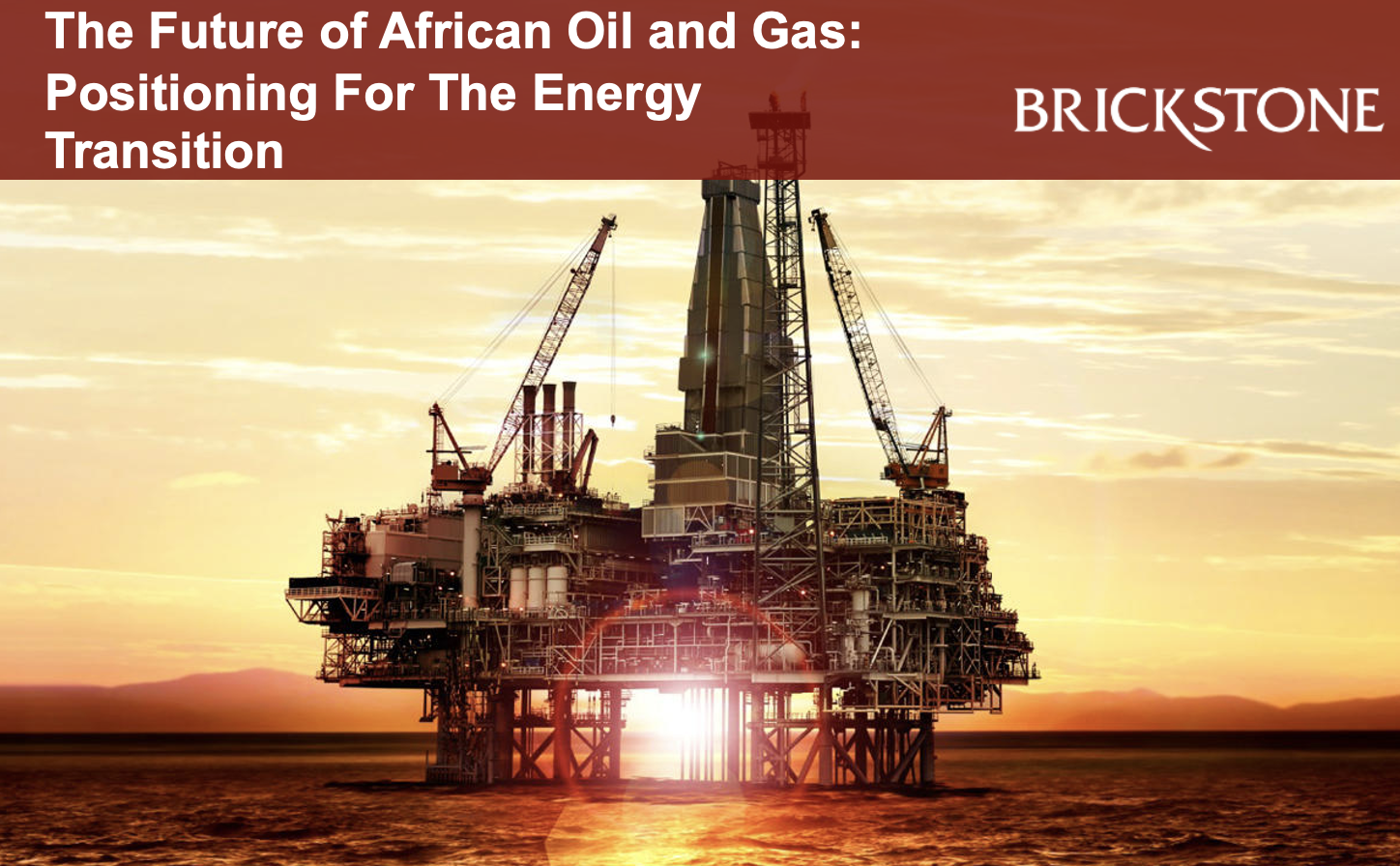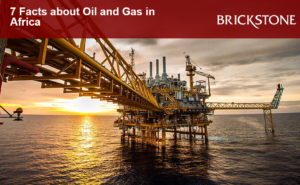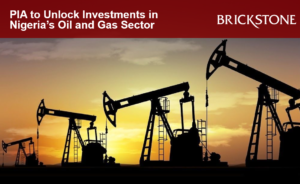The Future of African Oil and Gas: Positioning For The Energy Transition
As the world moves towards reducing greenhouse gas emissions from fossil fuels, the African oil and gas industry is confronted with mounting pressures, signifying a new era. Research has shown that African countries face significant exposure to the global energy transition as their economies heavily rely on oil and gas revenues, and their reserves are costlier to produce and more carbon-intensive than those in other regions.
Additionally, the continent’s energy demand is expected to surpass supply due to rapid population growth and industrialization over the next two decades, which will result in a substantial rise in energy demand, including for fossil fuels.
This article by Brickstone Africa reviews McKinsey’s publication on the future of African Oil and Gas, and positioning for the energy transition.
African Oil and Gas & Energy Transition
The African oil and gas industry is entering a new era. As the world looks to accelerate its transition away from fossil fuels, the pressures on the continent’s oil and gas producing nations are mounting.
With momentum for sustainability building, Africa’s oil and gas producing nations have a unique opportunity to embark on an inclusive energy transition and chart a course toward a sustainable future.At the same time, energy demand on the continent threatens to outstrip supply. Over the next two decades, rapid population growth and industrialization are expected to drive strong energy demand growth across the continent—including for fossil fuels.
McKinsey modeling estimates that African energy demand in 2040 could be around 30 percent higher than it is today, compared with a 10 percent increase in global energy demand.
The ongoing invasion of Ukraine, which has had deep human, social, and economic impacts across countries and sectors, adds another layer of consideration. European gas prices have increased by more than three times over the past 12 months, based on our data analysis. And since the start of the conflict, the European Commission has announced a plan to make Europe independent of Russian fossil fuels before 2030 through a combination of acceleration of renewable energy and diversification of natural gas supplies. This could result in increased demand for oil and gas from the African countries that have the reserves and infrastructure in place to help meet that demand.
Mckinsey’s article ulmimately unpacked how the energy transition—and a potential restructuring of global natural gas supply sources—could shape the future of Africa’s oil and gas sector, and we share high-level options that affected countries could consider to encourage the necessary investments and build long-term resilience at this critical juncture.
The challenge: The Pressure on African Oil and Gas Sector is Growing
It is increasingly clear that the global momentum toward sustainability and away from fossil fuels is accelerating. For the first time, the United Nations’ Framework Convention on Climate Change Conference of the Parties (COP26) explicitly referenced a shift away from coal and the phasing out of fossil fuel subsidies in its 2021 decision while governments, investors, and consumers around the world are signaling plans for a more rapid shift away from fossil fuels. McKinsey’s “current trajectory” energy transition scenario suggests that global oil demand could peak by 2027, while global gas demand could peak by 2040.
If leading countries achieve their net-zero commitments through targeted policies, the transition could be even faster. Under this “achieved commitments” scenario, global oil demand could peak as soon as 2024, while global gas demand could peak around 2030. This shift is bringing new pressures to bear on the oil and gas sector from stakeholders and regulators.
In its net zero by 2050 road map, the International Energy Agency (IEA) highlighted that the global energy sector needs to achieve a significant reduction in the use of hydrocarbons by 2040—including the phasing out of all unabated coal and oil power plants—in order to reach net zero by 2050.
At COP26, several new commitments were made, giving further momentum to the transition. In total, more than 150 countries have put forward new or updated emissions targets, with several African countries, including Botswana, the Democratic Republic of the Congo, Egypt, Ghana, Kenya, Morocco, Nigeria, and South Africa, making various commitments to restrict methane emissions, halt and reverse forest loss, phase out coal, and end international financing for fossil fuels. Nigeria also joined some of the world’s largest energy exporters, including Saudi Arabia, in committing to net zero by 2060.
Outside Africa, many countries are also starting to implement carbon pricing and taxes, which could have an impact on African countries dependent on oil and gas exports. The European Union’s Carbon Border Adjustment Mechanism, for example, will require EU importers to secure carbon certificates on imported goods corresponding to the carbon price that would have been paid, had the goods been produced under the EU’s pricing rules. And while South Africa is currently the only African country with a carbon-pricing system—signed into law at the end of 2019—others could soon follow.
In this context, oil and gas majors are increasingly challenged to deliver higher returns more sustainably. As a result, many are opting to reduce their African upstream exposure and rebalance their portfolios across resources with lower emissions intensity. Investor scrutiny for oil and gas projects, meanwhile, is intensifying as capital providers factor environmental, social, and governance considerations into their decisions. This shift is contributing to a widening gap between oil and gas company valuations and renewable-energy company valuations.
According to Mckinsey, this trend creates several considerations for African oil and gas producing countries that are highly dependent on global capital pools to fund their hydrocarbon projects and maintain their oil and gas operations. African oil and gas assets are on average 15 to 20 percent more costly to develop and operate and 70 to 80 percent more carbon intensive than global oil and gas assets. And as global capital pools for hydrocarbon projects begin to reduce, our analysis suggests the cost of oil and gas production in Africa is expected to rise, making African oil and gas projects potentially even less competitive in global markets.
Read the complete publication here.







